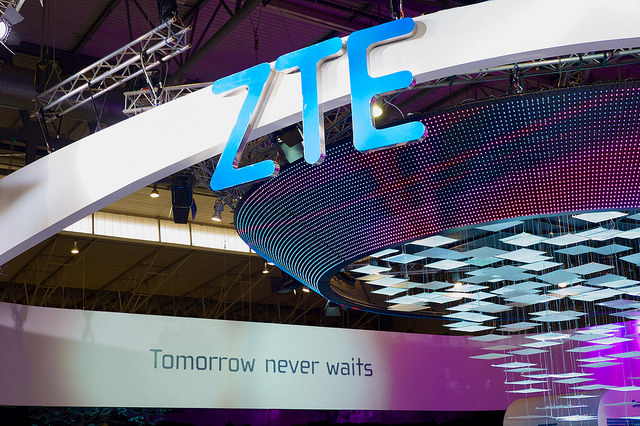 INFRA
INFRA
 INFRA
INFRA
 INFRA
INFRA
The U.S. Department of Commerce has temporarily lifted a portion of its ban on ZTE Corp. accessing U.S. technology as a deal brokered by the Trump administration moves closer to fruition despite attempts to block it.
Under the temporary reprieve issued Monday, ZTE will be able to resume some business activities with Bloomberg reporting that the decision may be a forerunner to a permanent order lifting the ban Aug. 1. Under that “definitive agreement” signed June 6, ZTE agreed to pay a $1 billion fine, place $400 million in escrow as insurance against future breaches and replace its senior management and board of directors.
The temporary authorization has a customer focus, allowing ZTE to provide support to its phone models sold to the public prior to April 15 and to receive and make payments for permissible transactions. In addition, the order allows “the disclosure to ZTE of information regarding security vulnerabilities in items owned, possessed or controlled by ZTE.”
The original ban, implemented by the Department of Commerce in April, related to ZTE breaching an agreement for access to U.S. technology after it was found guilty of selling U.S. technology to Iran and North Korea. The ban meant that ZTE, China’s second-largest telecommunications manufacturer, was denied access to chips and other technology from companies such as Qualcomm Technologies Inc. and Intel Corp. that accounted for an estimated 25 to 30 percent of the components used in its product portfolio. That caused it to announce in May that it was ceasing major operations.
Banning a large Chinese company from accessing U.S. technology and thus essentially putting it out of business was not a good look for the Trump administration at a time of heightened trade tensions and threats of a trade war between the world’s two biggest economies, leading the administration to cut a new deal.
Although it’s arguably a practical move in attempting detente with China on trade, the deal has proved highly unpopular in Congress. The Senate voted against the deal June 18. That ban still needs to progress through the House of Representatives and then get signed off by President Trump. If the ban doesn’t progress, it would need to get approved by a joint sitting of Congress in a veto-busting move, something that may take months to achieve if it gets that far. So for now, the original ZTE stands.
Support our mission to keep content open and free by engaging with theCUBE community. Join theCUBE’s Alumni Trust Network, where technology leaders connect, share intelligence and create opportunities.
Founded by tech visionaries John Furrier and Dave Vellante, SiliconANGLE Media has built a dynamic ecosystem of industry-leading digital media brands that reach 15+ million elite tech professionals. Our new proprietary theCUBE AI Video Cloud is breaking ground in audience interaction, leveraging theCUBEai.com neural network to help technology companies make data-driven decisions and stay at the forefront of industry conversations.